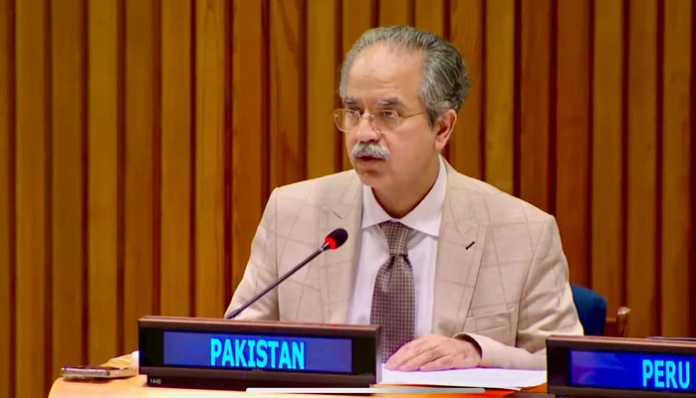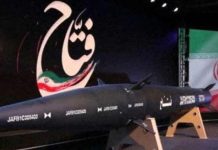UNITED NATIONS, JUN 25 (DNA): Pakistan has once again doubled down on its support for a peaceful resolution to the Iran nuclear issue, urging all parties to resume dialogue and avoid actions that could escalate tensions in the region.
Speaking at a UN Security Council (UNSC) meeting on the 2015 Iran nuclear deal, known as the Joint Comprehensive Plan of Action (JCPOA), Pakistan’s Ambassador to the UN, Asim Iftikhar Ahmad, said that “dialogue and diplomacy remain the only practical way forward.”
“The most widely held view was that dialogue, diplomacy and constructive engagement were the only viable way forward,” he noted.
Pakistan’s comments at the United Nations come hours after US President Donald Trump announced that Israel and Iran had agreed to a “complete and total ceasefire”.
The US president called the truce effective after berating Israel and Iran for ceasefire violations. Several countries, including Russia, France, Germany, and Saudi Arabia, welcomed the announcement of a ceasefire after 12 days of war between Mideast rivals.
At least 24 people have been killed and over 1,000 wounded in Israel, while its strikes on Iran have left at least 974 dead and 3,458 injured, according to Washington-based Human Rights Activists.
In his remarks at the UNSC today, Ambassador Ahmad welcomed the ceasefire between Iran and Israel, calling it a vital opportunity to get diplomacy back on track.
“Pakistan stands fully behind efforts to restore calm and avoid actions that could lead to more fighting, and we strongly support a lasting ceasefire in the region.”
He stressed that it was important that the International Atomic Energy Agency (IAEA) be allowed to do its job without interference.
“That view was still there out back in play with the negotiations between Iran and the United States facilitated by Oman, till it was violently disrupted by the unlawful and illegal military attacks on the IAEA-safeguarded Iranian nuclear facilities,” he said.
The ambassador emphasised that these attacks not only broke international law but also disrupted the IAEA’s “crucial verification functions” in Iran.
He also noted that Pakistan took a clear position since the beginning of the conflict and has been actively involved behind the scenes, with the country’s leadership maintaining contact with key players in the crisis.
He stressed that all disputes should be resolved in line with the UN Charter and international law.
Ahmad repeated Pakistan’s backing for the JCPOA or a similar agreement that all sides can accept, especially as the original deal is set to expire in October 2025.
“We reaffirm our support for the resolution of the Iran nuclear issue through peaceful means, diplomatic engagement and sustained dialogue,” he said.
“Pakistan advocates the preservation and the renewal of the JCPOA, or its substitution by an equally sound agreement that is acceptable to all sides, before it expires in October 2025.”
He urged all countries to act with restraint and keep diplomatic channels open. “This is the time for calm heads and serious dialogue, not more confrontation,” he said.

















